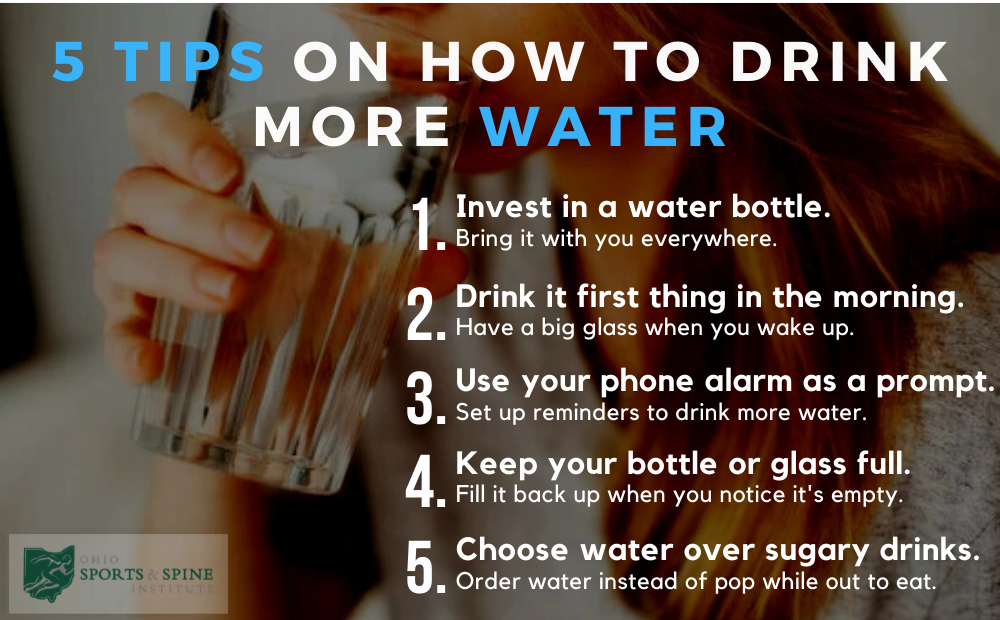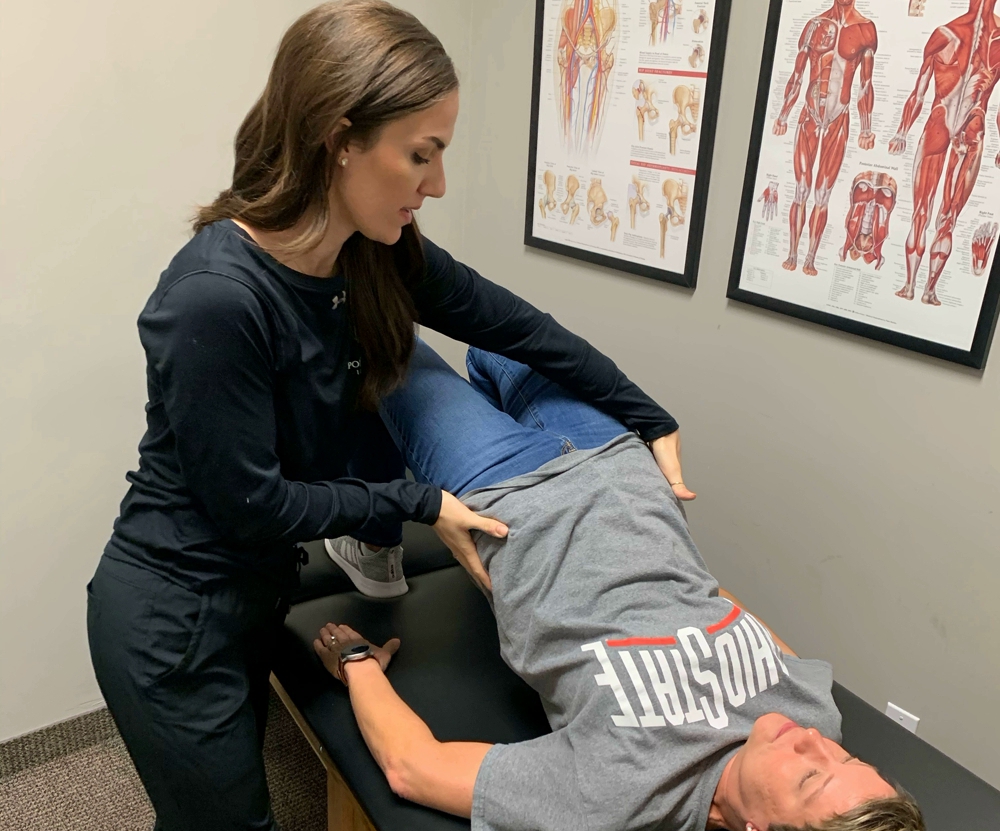Dehydration Symptoms & Ways to Hydrate
By Jennifer Kalinsky, PTA, BS, ACSM EP-C
Has anyone ever told you that you need to drink more water? Well, has anyone ever told you what happens when you don’t drink water?
We all know that our bodies are made up of water and we wouldn’t survive without it. So, it shouldn’t come as a shock when our bodies tell us they aren’t getting enough. Unfortunately, many times we don’t realize that’s what is happening.
How Can I Tell if I’m Dehydrated?
When you’re dehydrated and your body isn’t getting enough fluids, your cells shrivel and have to work harder to carry out basic functions, which can trigger other irregular balances, including a spike in your heart rate and a drop in your blood pressure.
Some other common symptoms of dehydration include thirst and dry mouth, fatigue, headaches, dizziness, infrequent and dark-colored urine, constipation, muscle cramps, clouded thinking, change in mood, dry skin, low blood pressure and not sweating when you should.
A common way to tell if you’re dehydrated is to perform the “dehydration pinch test” on yourself by lightly pinching some skin on the back of your hand, pulling it about a centimeter and then letting go. If it takes a few seconds for the skin to go back down, you may be dehydrated.
Everyone is susceptible to dehydration, but infants, children, athletes, elderly and those with chronic illnesses are more at risk.
Why Do I Need Water?
Think of a cornfield. The more sun and rain it gets, the better it grows and flourishes. If it gets too much sun and not enough water, it may still grow, but not nearly as well.
Your body needs water to perform at its best. Here are the benefits water delivers to your body:
- Helps moisten tissues
- Reduces body temperature
- Lubricates joints
- Protects body organs and tissues
- Helps prevent constipation
- Lessens the burden on the kidneys and liver by flushing out waste products
- Helps dissolve minerals and other nutrients to make them accessible to the body
- Carries nutrients and oxygen to the cells
- Protects spinal cord and sensitive tissue
- Helps in weight loss
So how much water should you drink a day? Men should have approximately one gallon per day and women should have approximately three-quarters of a gallon a day.
Whether you’re an elite athlete or an average Joe, your body needs water to function properly and flourish. Now I hope you’re motivated to go drink a glass of water.
Jennifer Kalinsky is a physical therapy assistant at Ohio Sports & Spine Institute. She is also a certified exercise physiologist through the American College of Sports Medicine. Although Jennifer is not a dietician or doctor, she enjoys educating her patients on fitness, nutrition and other exercise science topics, based on her studies and experience. You can reach her at j.kalinsky@ossinstitute.com or by calling one of our offices.





